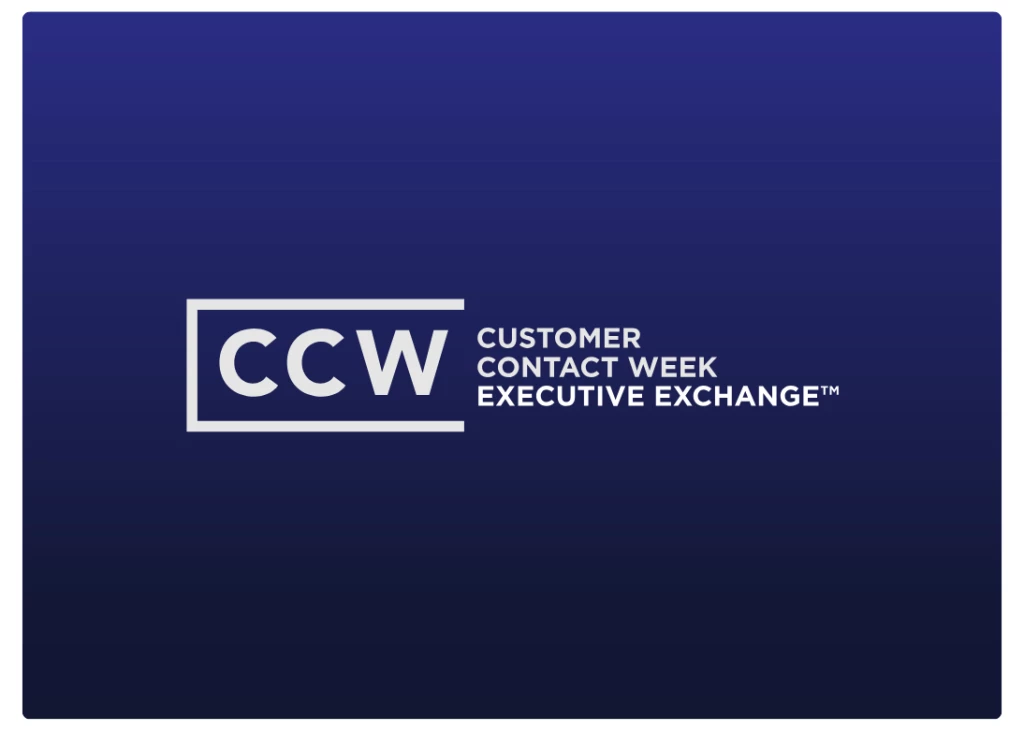Are You Making Customers Hate Your Call Center?
Add bookmarkWith report after report and anecdote after anecdote suggesting that a growing contingent of customers prefers self-service and social channels to the traditional contact center environment, it is important to address a key question:
Do customers simply hate using their phones to interact with brands? Or, is there something inherent to the way organizations use the traditional contact center that discourages interaction within that channel?
[eventPDF]
While increased comfort with online and mobile communication platforms is undoubtedly lessening the call center’s dominance as an ideal brand interaction channel, the reality is far closer to the latter. In the present, frustration is more about the service customers have come to expect—and fear—from call centers and their agents than it is a disapproval of the contact center in and of itself.
The existence of the latter objection is important because it means weaknesses in the organization’s customer experience will not automatically be eradicated as customers increasingly turn to alternative communications channels. The pitfalls responsible for damaging the reputation of the call center are fundamental to how many organizations approach customer support, and that means they can just as easily contaminate the customer experience in web, e-mail, live chat, text and social channels.
Instead of dismissing call center dissatisfaction as a consequence of the channel’s ongoing fade in prominence, organizations should be focusing on filling the gaps in their customer service philosophies responsible for accelerating that fade.
A recent "Angie’s List" article on properly communicating complaints to a brand underscores the negative perceptions truly responsible for damming customer satisfaction, none of which are of the simplistic, "I hate using my phone to talk to people" variety.
Here, we look at the list of best practices for complaining to customer service from the brand’s perspective, determining the strategic shortcomings that create negative perceptions of the contact center. Improving them is not only necessary for facilitating efficient, productive contact center interactions that drive improved satisfaction and create revenue opportunities but also for assuring new media channels do not succumb to the same perceptional hazards.
Have the facts at your fingertips
Why this matters to the customer: Having paperwork related to one’s account, bill and the support issue in question will add "credibility" to the complaint and expedite the resolution process.
How the brand is failing: The call center agent is giving the impression that his relationship with a complaining customer is adversarial. Instead of putting the customer’s needs on a pedestal and doing what he can to improve the situation, the agent believes his goal is to defend the brand against "giving in" to a pesky customer request.
There is also a data management fail here. Organizations should have no trouble pulling up a customer’s entire portfolio of relevant data in an instant. An inability to do so efficiently creates an unnecessary, undesirable customer experience snag.
Act assertive, not angry
Why this matters to the customer: Emotional customers, particularly openly-frustrated and angry ones, tend to push call center agents into a defensive state, weakening the resolve of the communication.
How the brand is failing: The call center agent is not accepting proper accountability for customer satisfaction. Though some customers will indeed rise to inappropriate levels of anger in inappropriately-short spans of time, it is fundamentally wrong for the agent to view this hurricane of emotion outside the walls of his own responsibility. Experience matters, and agents need to accept full accountability for keeping customers calm, level-headed and delighted as they work to solve the problem. When customers lose control, "she was just an irrational person" or "hey, I stuck to the script" are not valid justifications.
Always follow the golden rule
Why this matters to the customer: Call center interactions involve two humans, and if the customer does not treat the CSR the way he would like to be treated, he risks creating enough animosity to undermine the interaction. A vacant concern for the human element of the interaction can also prompt customers to hastily—and incorrectly—blame the brand for things which it is not responsible, thus switching the call center mindset to one of defense rather than collaboration.
How the brand is failing: "Do unto others" should not fully apply because the relationship is not one of parallels. The front-line agent’s job is to service the customer; the customer, not the agent, is the important one. Agents have to grant customers leeway to act superior and entitled because, as far as call center interactions are concerned, the customers are entitled to superior treatment. Agents should not necessarily roll over for outright, unproductive disrespect, but they also cannot hold every bit of discourteousness against the customer.
Go to the top
Why this matters to the customer: Often times, asking to speak to a manager or the "customer retention department" will prove more effective at getting the desired resolution. Either the impotent agent will transition the call to someone who can actually help, or the agent, afraid that his boss will learn of his shortcoming on the job, will step up his effort to drive customer happiness.
How the brand is failing: The agent’s real "employer" is the customer, not the call center supervisor, and so a threat to "complain to his boss" should pale in comparison to the more rudimentary concern that he is not delivering the service the customer wants. If an agent has been conditioned to tailor his performance specifically for his boss rather than for his organization’s customers, he is being mismanaged.
This customer gripe also underscores a greater call center challenge: how to empower the front-line agents. Most organizational systems seemingly require a limitation of the power of resolve given to the customer service representative, and yet if the agent is not authorized to act on a desired request (or, worse, advised not to pass such requests to middle- and upper-management), he will inevitably find himself in unproductive interactions with those disgruntled customers who seek specific restitution.
Explain the consequences
Why this matters to the customer: Stakes drive action. If the customer cannot meaningfully convey the harm of his dissatisfaction, he has not provided sufficient motivation for the agent to act at all, let alone go against the grain and risk butting heads with management.
How the brand is failing: Contact centers need to operate in accordance with what executives are increasingly finding to be true: customer satisfaction is an end. While the direct threat of customer attrition and lost business always helps facilitate swifter action, the reality is that customer service agents should draw all the motivation they need from the simple question of whether they are satisfying or dissatisfying the customer on the other end of the phone.






















